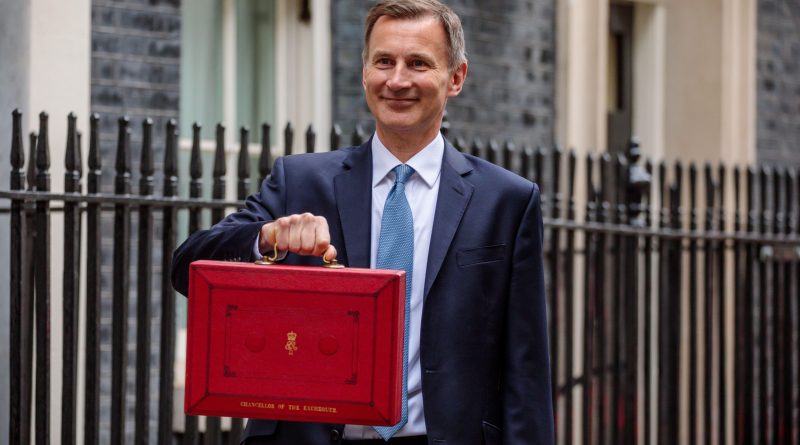Chancellor announces 2023 financial Budget
By Connor Steel
JEREMY HUNT has announced the British economy is ‘proving the doubters wrong’ and is expected to avoid a technical recession during 2023 in his first Budget speech as Chancellor of the Exchequer; further outlining a variety of measures to Parliament as the country looks to build financial growth after the recent uncertainty.
Using forecasts from the independent Office for Budget Responsibility, Mr Hunt said he would remain vigilant of multiple global factors amidst an expected 0.2% downturn in the economy this year. But financial growth is currently forecast to be 1.8% by the end of 2024, which will rise by another 2.5% in 2025, and 2.1% by 2026.
British inflation rates have also fallen over time and these looks set to dip further to 2.9% by the end of 2023; a decrease from 10.7% between October and December last year. Mr Hunt said that this would allow the UK debt forecast to 92.4% of GDP this year, before rising towards 93.7% by 2024 with an overall low tax burden.
Mr Hunt confirmed that measures announced in last year’s Autumn Statement will remain unchanged and no immediate tax cuts will be made at this time; although he did announce that every worker can accumulate an unlimited amount of pension savings as he stated the existing cap of £1.07 million will be abolished this year.
The current five-pence cut to fuel duty on petrol and diesel has also been extended for twelve months due to costing pressures caused by the Russian invasion of Ukraine, whilst alcohol taxes in pubs will be decreasing by eleven pence in the pound cheaper than the supermarket rates from August in a large boost to hospitality.
Investment Zones were also confirmed across the country and these would all be funded by £80 million over the next five yards, with businesses in these areas likely to receive tax breaks and other benefits. Meanwhile the main rate of corporation tax has increased from 19% to 25% for businesses earning £250,000+ in profits.
Extra support was also announced to help households through the ongoing cost of living crisis as the £2,500 cap on energy bills would be extended until June. £200 million was further allocated to bring energy charges for prepayment meters into line with customers paying by direct debit, reducing bills for 4 million households.
A commitment was made to invest twenty billion pounds on low-carbon energy projects by 2043, with a focus on carbon capture and storage. £63 million was allocated to support community leisure centres to relieve the large increases in swimming pool heating costs and for them to invest across energy efficiency technologies.
In a bid to lower UK unemployment rates from 3.7% the Government have announced that more parents can claim up to thirty hours free childcare in England, expanding this scheme to cover one and two years old in a rollout programme by April 2024. Families claiming Universal Credit will be eligible to claim up-front childcare support instead of being paid in arrears; the £646-a-month limit for this support increased to £951 each child.
Jobseekers should face tougher requirements when looking for roles and a new “work fitness testing regime” will be created for those qualifying for health-related benefits, whilst a brand new provision entitled ‘Universal Support’ is due to be created for disabled people. An extended focus on over fifties will continue in the future.
Other measures include a commitment to raise defence spending by £11 billion over the upcoming five years alongside an extra £10 million made available to charities preventing suicide. Funding support to help British AI industries have further been allocated with £900 million to be put forward for a new computer ‘tech’ facility.
Conservative MPs including Suella Braverman and Dame Caroline Dinenage have praised the Budget, but it was heavily criticised by opposition parties. The Labour leader accused Mr Hunt of describing “stagnation as stability” and argued this Budget was simply “sticking plaster politics” that would not wash with British voters.
There were further concerns about a lack of detail on regarding any potential pay increases for public sector workers, particularly amidst the backdrop of picket lines taking place in Westminster. It comes as 500k+ civil servants, teachers and junior doctors withdrew their labour on Wednesday with future RMT industrial action.
Readers are encouraged to visit media sites such as BBC News, Sky News and ITV News for all developing updates, whilst the Globe will be publishing reaction from local figures and organisations in the coming days.
PICTURED BY ALAMY (2PDWDD9): Jeremy Hunt leaves 11 Downing Street to outline 1st financial Budget.




